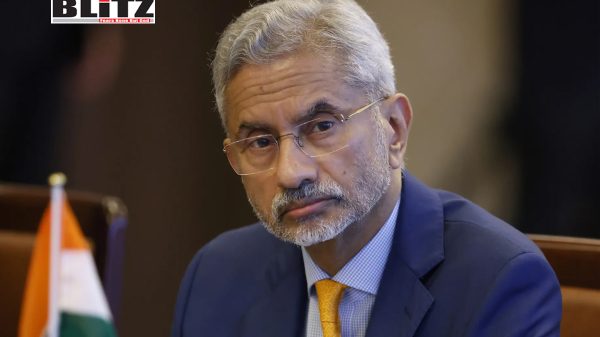Banned UK doctor still practicing in Romania amid regulatory loopholes
- Update Time : Tuesday, October 7, 2025

Romania’s top medical body has come under fire after confirming that it allows a doctor banned in the United Kingdom for sexual abuse to continue practicing medicine within its borders. The case has ignited a broader debate about the glaring loopholes in Europe’s medical oversight systems-loopholes that allow doctors disciplined or banned in one country to simply move and restart their careers elsewhere.
The revelations stem from a sweeping international investigation, led by the Organized Crime and Corruption Reporting Project (OCCRP), Norway’s VG, and The Times of London, which found more than 100 doctors currently licensed in various European countries despite having been banned, sanctioned, or suspended in others. Among them is Dr. Iuliu Stan, a Romanian trauma and orthopedic specialist who was struck off the UK medical register after being found guilty of serious sexual misconduct involving his patients.
In Britain, the Medical Practitioners Tribunal Service determined that Stan had subjected male patients to “unnecessary, invasive, and intimate procedures for his own sexual gratification.” The findings led to his permanent removal from the UK medical register. Yet, by the time the verdict was finalized, Stan had already returned to Romania, where he resumed work at the County Emergency Hospital in Cluj-Napoca – one of the country’s largest public medical institutions.
When confronted by reporters from OCCRP’s Romanian partner Public Record, Stan categorically denied all allegations, insisting he had acted solely in his patients’ best interests. “Everything I did, I did in the interests of the patients, to the best of my ability,” he said. “None of the patients complained about me. On the contrary, they were satisfied and congratulated me.”
Despite his defense, the fact remains that Stan was formally struck off in the UK for egregious misconduct. His continued employment in Romania highlights a stunning lack of accountability and raises pressing ethical questions about how medical regulators treat foreign disciplinary actions.
The College of Physicians of Romania (Colegiul Medicilor din România, CMR)-the professional body responsible for licensing doctors in the country-has openly defended its inaction. In a statement issued on social media following the investigation’s publication, the CMR acknowledged receiving the UK’s alert about Stan but claimed it had no legal authority to revoke his license based on sanctions issued abroad.
“Such alerts cannot have any effect on the right to free practice of doctors sanctioned outside the borders of Romania,” the CMR’s statement read. “These decisions are valid only on the territory of the respective states.”
In other words, Romania’s regulators admit that their hands are tied when it comes to enforcing disciplinary measures from other countries – even when those measures concern serious offenses like sexual assault. The CMR added that it participates in the European Union’s alert system, which is designed to share warnings about dangerous doctors between member states, but that its domestic laws do not require it to act on such alerts unless the offenses occurred on Romanian soil.
The OCCRP-led “Bad Practice” investigation revealed that the European Union’s alert mechanism for medical professionals – intended to prevent banned doctors from moving freely between countries – is rarely used, inconsistently enforced, and in some cases, entirely ignored.
According to the report, some nations either fail to issue alerts or do not follow up when receiving them. The consequence is a fragmented regulatory system that allows medical professionals with serious ethical or criminal violations to continue practicing, often in new countries where patients and employers are unaware of their past misconduct.
This lack of coordination has now drawn fierce criticism from both European and national leaders. Ireland’s prime minister, Micheál Martin, said the findings were “deeply troubling,” calling for stronger cross-border vetting and verification before allowing doctors to register in new jurisdictions. “Systems have to be very robust and resilient in respect of tracking what’s happening in other countries,” Martin told The Irish Times. “There has to be a mechanism in place before someone is put on the register here.”
In the wake of the investigation, health ministers in Norway, Germany, Spain, and Cyprus have announced reviews into individual cases cited by journalists. Britain’s Health and Social Care Secretary also called for reforms to prevent doctors who lose their licenses in one country from simply relocating to another.
In Romania, however, officials have largely remained silent. When asked about the case during an October 2 press conference, Health Minister Alexandru Rogobete declined to comment, leaving the CMR’s statement as the country’s only official response.
This silence has fueled anger among patient advocacy groups and transparency organizations, who accuse Romanian authorities of failing to protect the public from potentially dangerous practitioners. Critics argue that the CMR’s rigid interpretation of its legal remit prioritizes bureaucratic procedure over patient safety.
Legal experts also point out that Romania’s stance effectively undermines the spirit of EU-wide cooperation, which depends on member states sharing responsibility for upholding professional standards. “The idea that a doctor can be struck off in London and simply start again in Cluj is absurd,” said one Romanian health law expert. “It suggests that professional ethics stop at the border.”
The case of Dr. Iuliu Stan is not an isolated failure; it is symptomatic of a broader regulatory dysfunction across Europe. The EU’s professional mobility rules, meant to make it easier for skilled workers to move freely between countries, were designed with economic integration in mind-not with the prevention of professional misconduct. As a result, the system lacks strong enforcement mechanisms when it comes to sharing or acting upon disciplinary information.
What is urgently needed, advocates say, is a centralized European registry of sanctioned healthcare professionals, accessible to national regulators and employers alike. Without such a system, doctors disciplined for malpractice, fraud, or abuse will continue to exploit jurisdictional gaps.
For victims, the idea that their abusers might still be treating patients elsewhere is a devastating betrayal. For the public, it is a sobering reminder that patient safety in Europe still depends too much on geography – and too little on justice.
Until European governments bridge these gaps, the next “Dr. Stan” may already be working in another country, wearing a white coat, and hiding behind a license that should have been revoked long ago.











